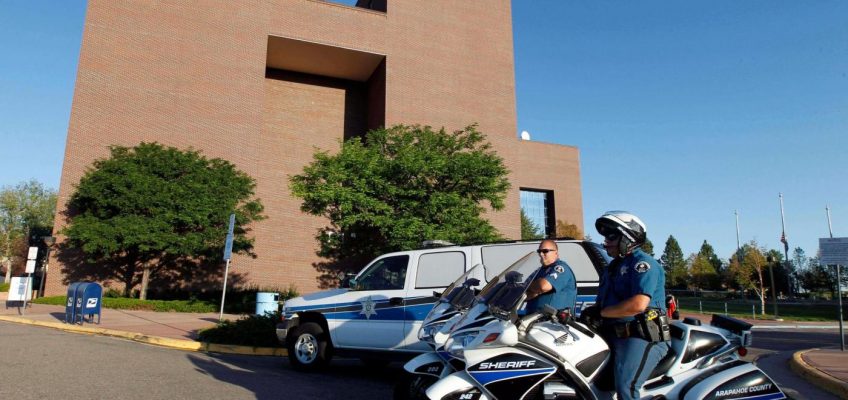By ALI SWENSON and NICHOLAS RICCARDI, Associated Press
NEW YORK (AP) — As his supporters erupt over the Justice Department’s failure to release much-hyped records in Jeffrey Epstein’s sex trafficking investigation, President Donald Trump’s strategy has been to downplay the issue.
His problem? That nothing-to-see-here approach doesn’t work for those who have learned from him that they must not give up until the government’s deepest, darkest secrets are exposed.
Last week, the Justice Department and the FBI abruptly walked back the notion that there’s an Epstein client list of elites who participated in the wealthy New York financier’s trafficking of underage girls. Trump quickly defended Attorney General Pam Bondi and chided a reporter for daring to ask about the documents.
The online reaction was swift, with followers calling the Republican president “out of touch” and demanding transparency.
On Saturday, Trump used his Truth Social platform to again attempt to call supporters off the Epstein trail amid reports of infighting between Bondi and FBI Deputy Director Dan Bongino over the issue. He suggested the turmoil was undermining his administration — “all over a guy who never dies, Jeffrey Epstein.”
FILE – This photo provided by the New York State Sex Offender Registry shows Jeffrey Epstein, March 28, 2017. (New York State Sex Offender Registry via AP, File)
That did little to mollify Trump’s supporters, who urged him to release the files or risk losing his base. At least one follower responded to Trump’s post by saying it seemed as though the president was just trying to make the issue go away — but assured him it wouldn’t.
The political crisis is especially challenging for Trump because it’s one of his own making. The president has spent years stoking dark theories and embracing QAnon-tinged propaganda that casts him as the only savior who can demolish the “deep state.”
Now that he’s running the federal government, the community he helped build is coming back to haunt him. It’s demanding answers he either isn’t able to or does not want to provide.
“The faulty assumption Trump and others make is they can peddle conspiracy theories without any blowback,” said Matt Dallek, a political scientist at George Washington University. “The Epstein case is a neat encapsulation that it is hard to put the genie back in the bottle.”
A problem that’s not going away
Last week’s two-page statement from the Justice Department and the FBI saying they had concluded that Epstein did not possess a client list roiled Trump’s supporters, who pointed to past statements from several administration officials that the list ought to be revealed.
When do ‘big, beautiful’ megabill changes go into effect?
Employees at the nation’s consumer financial watchdog say it’s become toothless under Trump
Trump and Sen. Dave McCormick team up to promote energy investments in Pennsylvania
Senate confirms Trump’s first judicial nominee of his second term
A chaotic raid, 360 arrests, and a tragic death: What happened at California’s Glass House Farms
Bondi had suggested in February that such a document was sitting on her desk waiting for review, though last week she said she had been referring generally to the Epstein case file and not a specific client list.
Conservative influencers have since demanded to see all the files related to Epstein’s crimes, even as Trump has tried to put the issue to bed.
Far-right commentator Jack Posobiec said at Turning Point USA’s Student Action Summit on Saturday that he would not rest “until we go full Jan. 6 committee on the Jeffrey Epstein files.”
Trump’s weekend post sought to divert attention by calling on supporters to focus instead on investigating Democrats and arresting criminals rather than “spending month after month looking at nothing but the same old, Radical Left inspired Documents on Jeffrey Epstein.” His first-term national security adviser, retired Lt. Gen. Michael Flynn, pleaded with him to reconsider.
“@realdonaldtrump please understand the EPSTEIN AFFAIR is not going away,” Flynn wrote, adding that failing to address unanswered Epstein questions would make facing other national challenges “much harder.”
Other Trump allies continue to push for answers, among them far-right activist Laura Loomer, who has called for Bondi to resign. She told Politico’s Playbook newsletter on Sunday that a special counsel should be appointed to investigate the handling of the files on Epstein, who was found dead in his federal jail cell in 2019 about a month after he was arrested.
Experts who study conspiracy theories warned that more sunlight does not necessarily make far-fetched narratives disappear.
“For some portion of this set of conspiracy theory believers, no amount of contradictory evidence will ever be enough,” said Josephine Lukito, who studies conspiracy theorists at the University of Texas at Austin.
Trump and his colleagues set their own trap
The president and many figures in his administration — including Bondi,Bongino and FBI Director Kash Patel — earned their political capital over the years in part by encouraging disproven conspiracy theories on a range of topics, from elections to vaccines.
Now, they’re tasked with trying to reveal the evidence they’d long insisted was there — a challenge that’s reached across the government.
Last week, Environmental Protection Agency Administrator Lee Zeldin posted on X what seemed like an endorsement of a notorious conspiracy theory that the contrails left by aircraft are releasing chemicals for potentially nefarious reasons. But a second post from Zeldin underscored the fine line the Trump administration is trying to walk by linking to a new page on the EPA website that essentially debunked the theory.
The value of conspiratorial fabrications is that they help people get political power, said Russell Muirhead, who teaches political science at Dartmouth College. He said Trump has exploited that “more ably than anybody probably in American history.”
But the Epstein case brings unique challenges, he said. That’s because it’s rooted in truth: A wealthy and well-connected financier did spend years abusing large numbers of young girls while escaping justice.
As a result, Trump needs to come forward with truth and transparency on the topic, Muirhead said. If he doesn’t, “large segments of his most enthusiastic and devoted supporters are going to lose faith in him.”
A potentially costly distraction
As right-wing outrage over Epstein dominates the political conversation, Democrats and other Trump rivals have been taking advantage.
Several Democratic lawmakers have called for the release of all Epstein files and suggested Trump could be resisting because he or someone close to him is featured in them. Conservatives expressed concerns that Trump’s approach on Epstein could hurt them in the midterms.
“For this to go away, you’re going to lose 10% of the MAGA movement,” right-wing podcaster Steve Bannon said during the Turning Point USA Student Action Summit on Friday.
There’s also the challenge of governing.
Bondi and Bongino had a tense exchange last week at the White House over a story about Epstein, according to a person familiar with the matter who spoke on the condition of anonymity to discuss a private conversation.
FILE – Daniel Bongino speaks during a House Judiciary Committee hearing on proposed changes to police practices and accountability on Capitol Hill, June 10, 2020, in Washington. (Greg Nash/Pool via AP, File)
And Loomer, who is close to Trump, said Friday she was told that Bongino was “seriously thinking about resigning.” Bongino showed up at work Monday, according to a person familiar with the matter who insisted on anonymity to discuss personnel issues. The FBI declined to comment.
Patel also took to social media Friday to dismiss what he called “conspiracy theories” that he himself would be leaving the administration.
FILE – FBI Director Kash Patel testifies during a hearing on Capitol Hill in Washington, May 8, 2025. (AP Photo/Jose Luis Magana, File)
Dallek, the George Washington University professor, said it’s alarming that the country’s top law enforcement officials are feuding over a conspiracy theory.
“It’s possible at some time voters are going to notice the things they want or expect government to do aren’t being done because the people in charge are either incompetent or off chasing rabbits,” he said. “Who is fulfilling the mission of the FBI to protect the American people?”
Riccardi reported from Denver. Associated Press writers Eric Tucker, Melissa Goldin and Gary Fields in Washington contributed to this report.



